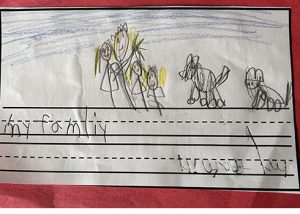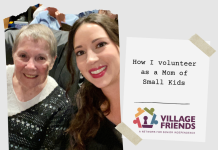 “I love you, Mommy.”
“I love you, Mommy.”
As sweet as it sounded, I knew she’d usually done something she shouldn’t have when she slid up next to me and said, “I love you, Mommy.”
It was never anything terrible, but it was usually something that we needed to address. She knew she’d messed up and she knew she’d be in trouble, but I think she just needed to be reassured that I still loved her even though she’d disobeyed.
My answer was always, “I love you too!” I’d hug her, give her a smile, and ask, “Is there something we need to talk about?” She’d drop her head and confess. We’d have a talk. If restitution or consequences were in order, we’d take care of it. Once that was done, we’d both feel better and life would return to normal.
Kent and I learned from another parent further along the path than us that discipline is more about consistency than severity. Setting boundaries for kids is healthy and helps them feel secure in their world. Letting them know up front what the rules are and what happens if they choose to break them, shows them they have the freedom to make their own choices. By doing so, they learn cause and effect, progress toward independence, and gain confidence–all good goals to work toward.
The big rules should be simple. Things like:
Obey your parents
Respect others
Safety first
These are general things that fit most every situation.
The more detailed, situation-specific rules are best kept to a minimum and should be easy to remember. Common sense things like:
Clean your room each night
Make your bed each morning
Brush your teeth
Do your chores
The idea is to, instead of weighing them down with lots of rules to remember, make rules intuitive and simple. Setting children up to succeed builds their self-confidence and builds their trust in us as they get lots of yeses and lots of positive reinforcement. They end up feeling good about themselves and parents get to be the good guys while still teaching kids to be thoughtful human beings.
Another good idea we learned was not to make every little thing an imperative, a “must-do,” or a “must-do-now-or-else.” Making everything all-or-nothing causes kids to resent authority, fail often, and lose trust and self-confidence. Short term, this may accomplish a parent’s immediate goal, but long term, it wears down their “want to.” They get weary of always being ordered around and may do like a pet with an electric fence and a shock collar—weigh the consequences against the fun of doing what he wants to do.
My first job out of internship was in the hospital where I trained. I was treated like a professional. They gave me lots of responsibility and trusted me to troubleshoot the instruments in the lab. I had been taught how they worked, the chemistry behind the tests, and how to do maintenance on them. They expected me to know what to do and if I didn’t know, to ask for help.
My second job was in another hospital. The philosophy was completely different. I was told to always look busy, and someone was watching to make sure that I was. I was told never to troubleshoot any of the instruments, to leave that to someone more qualified than me. Over the time I worked there it never changed. It was like they didn’t trust me to know anything, just do the work. My morale at that job was nothing like at my first job.
A lot of what I learned from the two workplaces transferred to my parenting. I learned that if I prepared the kids ahead of time, taught them what to expect, and made the rules simple and straightforward, they realized I had confidence in them. They felt like part of the team, not just worker bees. It went a long way in preventing discipline issues because they felt valued and needed.
When we give children every opportunity for a “yes,” when we have to give them a “no” it carries more weight. If they succeed most of the time, they are more sensitive to the not-so-good feeling when they fail to do what’s expected. And hopefully, it inspires them to want to get a yes, to want to be kind, and generous, and cooperative, and all those good things.
Now, granted, not every child responds in the same way to the same methods. These are all things that worked for us, no guarantee they will work in your house. They are suggestions and ideas to try, a jumping-off place for brainstorming for you and your kids. Oh, that’s another thing we did at our house; the kids got to help set up the consequences for many of the wrong behaviors. We had an “If/Then” chart that had things like lying, disobeying, picking fights, arguing, complaining…you get the picture. Because they got to help set up reasonable consequences, they were more likely to comply. We had a “Blessings” chart too, with things like truthfulness, kindness, helpfulness, etc. These all had good consequences, encouraging them to make those things part of their behavior.
Parenting is one of the most challenging, frustrating, wonderful things we can do. Those little people in our house grow up and go out on their own all too quickly. By staying flexible and being willing to admit it when we, as parents, mess up, we allow our kids to see that even grownups make mistakes and wrong choices. And thankfully, we are never too old to learn and grow. Disciplining our kids with love and consistency teaches us as much as it teaches them.
Not every, “I love you, Mommy” meant someone had been into trouble, but even when it did, it became a window into a bad behavior, an opportunity to correct something that needed correcting, and a sweet opportunity to deepen our relationship.
“I love you, Mommy.”
“I love you too, Sweetheart!”
Blessings!











